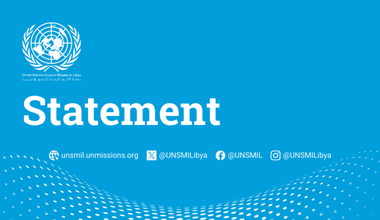Ministerial Meeting for Libya Joint Communique, Vienna 16 May 2016
We welcome the presence of Prime Minister al-Sarraj and commend his leadership in guiding Libya’s institutions through seating the government in Tripoli, a turning point in the Libyan political process.
We express our strong support for the Libyan people in maintaining the unity of Libya. We reaffirm our support for the implementation of the Libyan Political Agreement (LPA) of Skhirat, Morocco signed on December 17, 2015, and for the Government of National Accord (GNA) as the sole legitimate government of Libya, as stated in the Rome Communique of December 13, 2015, and endorsed in UN Security Council Resolution 2259. We urge all parties to work constructively towards the completion of the transitional institutional framework, particularly by enabling the House of Representatives to fully carry out its role as outlined in the LPA.
We renew our firm support to Libya’s sovereignty, territorial integrity, and unity. We share the Libyan people’s aspiration to transform Libya into a secure and democratic state, achieve unity and reconciliation, and restore the rule of law and state authority. We express our solidarity with the Libyan people in the face of the humanitarian and economic hardship that the political crisis has created. We reiterate our determination to assist Libyan institutions as they work to reestablish prosperity and urgently deliver basic services. All segments of society from all Libya’s regions must find their rightful place in the political process and contribute to charting the path towards stability. We encourage Libya’s new authorities to strengthen their outreach inside Libya and seek effective mechanisms for a dialogue to support reconciliation. We are committed to supporting all efforts of the GNA in order to enhance political outreach throughout the country. The GNA should provide swift humanitarian assistance to the whole country, especially in Benghazi.
We commend the efforts of the neighboring countries, the regional countries, the African Union, the League of Arab States, the European Union, and the United Nations to contribute to achieving these goals. We reiterate our full political backing for the efforts of Special Representative of the United Nations Secretary-General Martin Kobler and commend his recent outreach to various Libyan communities.
Security is key for the future of Libya. The GNA faces critical security challenges, but it does not face them alone. We salute the Presidency Council’s creation of the Presidential Guard which will be composed of professional personnel according to Article III of the Presidential Council Decree No 2 to protect national institutions, members of the Presidential Council, and members of the government. We recognize the necessity of enhanced coordination efforts between legitimate Libyan military and security forces and urge them to work quickly to implement a unified command in accordance with the LPA, to coordinate the fight against Da’esh and UN-designated terrorist groups in Libyan territory. Ensuring security and defending the country from terrorism must be the task of unified and strengthened national security forces. Libyans must fight against terrorism with unity.
We look forward to partnering with the GNA and neighboring countries to tackle the threat posed throughout the Mediterranean and on its land borders by criminal organizations engaged in all forms of smuggling and trafficking, including in human beings. We appreciate the cooperation between Libyan Authorities, neighboring countries, and the European Union aimed at dismantling the business model used by the criminal networks, including through building the capacity of the Libyan Coast Guard. We are ready to respond to the Libyan government’s requests for training and equipping the Presidential Guard and vetted forces from throughout Libya.
The Government of National Accord has voiced its intention to submit appropriate arms embargo exemption requests to the UN Libya Sanctions Committee to procure necessary lethal arms and materiel to counter UN-designated terrorist groups and to combat Da’esh throughout the country. We will fully support these efforts while continuing to reinforce the UN arms embargo.
We reiterate our commitment to ceasing support to and official contact with parallel institutions. The GNA is the sole legitimate recipient of international security assistance and is charged with preserving and protecting Libya’s resources for the benefit of all its people. While deploring recent oil and arms transactions made outside the scope of the GNA, we reaffirm our commitment to upholding the arms embargo and measures concerning illicit oil exports, established pursuant to UN Security Council 2278 and other relevant resolutions.
Libya’s national economic institutions, including the Central Bank of Libya (CBL), National Oil Corporation (NOC), and Libyan Investment Authority (LIA), must function under the sole stewardship of the GNA.
The international community is willing to reopen diplomatic missions in Tripoli as soon as possible. The GNA shall take all necessary measures in order to provide the security conditions that will allow the return of the diplomatic missions.
Algeria, Chad, China, Egypt, France, Germany, Jordan, Italy, Malta, Morocco, Niger, Qatar, Russia, Saudi Arabia, Spain, Sudan, Tunisia, Turkey, the United Arab Emirates, the United Kingdom, the United States, the European Union, United Nations, the League of Arab States, and the African Union
 United Nations Peacekeeping
United Nations Peacekeeping UN
UN








